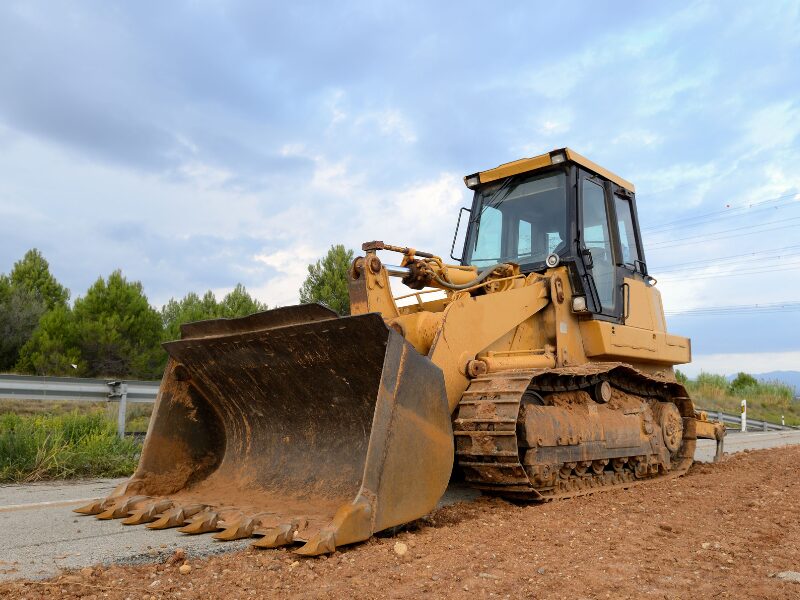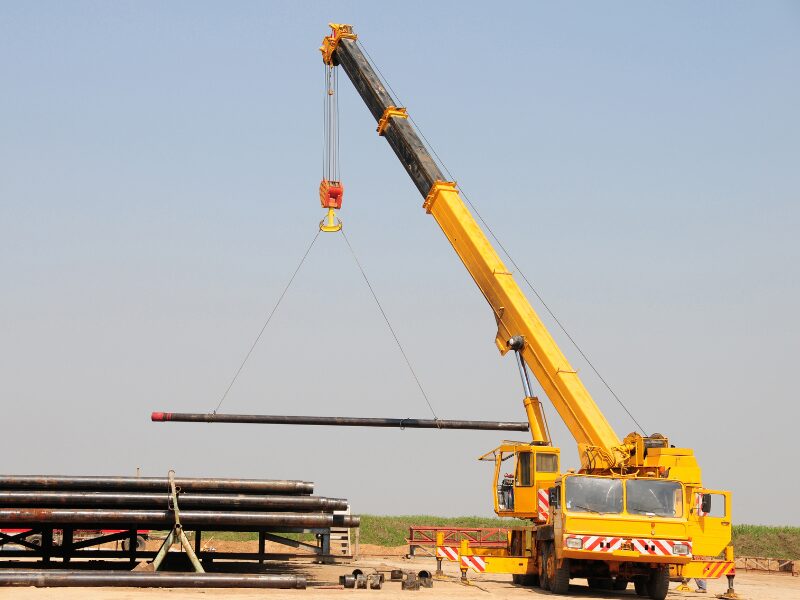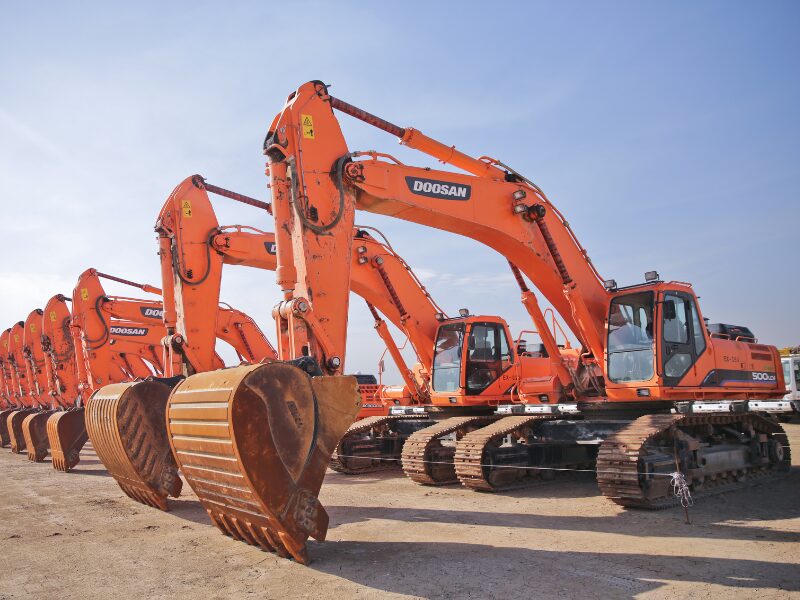Key Takeaways
- When it comes to acquiring essential heavy equipment for your business, you have two choices: leasing or buying through a loan.
- Buying gives you full ownership and equity in the equipment, while leasing offers flexibility to upgrade at the end of the term.
- Buying is less expensive and more cost-effective in the long run, as you eliminate monthly payments once the equipment is paid off. Leasing is generally more expensive
- Buying may qualify for depreciation deductions, while lease payments are often fully tax-deductible as operational expenses.
- Buying is better for long-term, frequent use, while leasing suits short-term projects or occasional use.
- Leasing is ideal for industries with rapidly evolving technology or those that have approved operating expenditures.
- Always consult a lending expert to understand how leasing or buying impacts your specific business situation. With the right guidance, you can choose the right option for your business.
For businesses in certain industries, heavy equipment is essential to running operations. To get the equipment you need, you have two main choices: leasing or buying. How are the two options different, and which one should you choose? Understanding the difference between heavy equipment leasing and buying can significantly impact your cash flow, tax obligations, and long-term business strategy. Let’s go over the pros and cons of heavy equipment leasing vs buying, helping you decide which option aligns best with your business goals.
Difference Between Heavy Equipment Leasing and Buying
Heavy equipment is a substantial investment, and most businesses don’t have the capital to purchase it outright or choose not to for budgeting reasons. If you want to acquire heavy equipment like tractors, excavators, and cranes, you have two choices to make it happen: buying and leasing. Here’s a heavy equipment and leasing comparison:
- Buying: Purchasing heavy equipment outright or through a loan means you own the asset once the loan is paid off. This option is ideal for businesses looking to own equipment long-term or those looking to build equity in their assets.
- Leasing: Leasing heavy equipment involves renting it for a fixed period, typically with the option to upgrade or purchase at the end of the lease term. This option is popular among businesses that prefer flexibility.
Now, let’s break down the heavy equipment leasing vs buying in detail.
The Case for Buying Heavy Equipment
1. Ownership and Equity
When you buy heavy equipment, you own it outright (or once the loan is repaid). This means you can use the equipment for as long as you need, sell it, or trade it in for a newer model. Ownership also allows you to build equity in the asset, which can be beneficial for your business’s balance sheet.
2. Tax Benefits
In Australia, businesses that purchase heavy equipment may be eligible for tax deductions. Businesses can get deductions for interest payments and depreciation rules, which means they can offset against revenue, leading to lower taxable income.
3. No Restrictions on Usage
When you own the equipment, you have complete control over how and when it’s used. There are no mileage limits, usage restrictions, or penalties for wear and tear, which can be common in leasing agreements.
4. Long-Term Cost Savings
While buying requires a higher upfront investment, it can be more cost-effective in the long run. Once the equipment is paid off, you no longer have monthly payments, and the asset can continue to generate revenue for your business.

The Case for Leasing Heavy Equipment
1. Flexibility and Upgrades
Leasing offers the flexibility to upgrade to newer models at the end of the lease term. This is particularly beneficial in industries where technology evolves rapidly, ensuring you always have access to the latest equipment.
2. Tax Deductions
Lease payments are often considered operational expenses, which means they may be fully tax-deductible. This can provide immediate tax benefits compared to the depreciation deductions available when buying.
3. Maintenance and Repairs
Many leasing agreements include maintenance and repair services.
4. No Risk of Equipment Becoming Outdated
Leasing allows you to avoid the risk of owning outdated equipment. At the end of the lease term, you can simply return the equipment and lease a newer model, ensuring your business remains competitive.
Heavy Equipment Leasing vs Buying: Key Considerations
To determine which is better, heavy equipment leasing or buying?, consider the following factors:
1. Business Cash Flow
Leasing is generally more expensive than buying through a loan. Consider your business’s cash flow and your long term financial goals when making the choice between the two options. If you want to know how much a loan would cost you monthly, check out our equipment finance calculator.
2. Equipment Usage
How often will you use the equipment? If it’s for a short-term project or occasional use, leasing might make more sense. For long-term, frequent use, buying could be more cost-effective.
3. Technological Advancements
In industries where technology changes rapidly, leasing allows you to stay up-to-date without the hassle of selling outdated equipment.
4. Tax Implications
Consult with a tax professional to understand how buying or leasing will impact your tax obligations. Both options offer tax benefits, but the specifics will depend on your business’s financial situation.
5. Long-Term Goals
Consider your business’s long-term goals. If you’re looking to build equity and assets, buying is the way to go. If flexibility and low upfront costs are more important, leasing may be the better choice.

Which is Better, Heavy Equipment Leasing or Buying?
The answer to which is better, heavy equipment leasing or buying? depends on your business’s unique needs and circumstances. Here’s a quick summary to help you decide:
Choose Buying If:
- You want to build equity and own the asset.
- You want the freedom to use your asset in any way.
- You plan to use the equipment long-term.
- You want to take advantage of depreciation tax benefits.
- You want to save more over time.
Choose Leasing If:
- You need flexibility to upgrade or replace equipment.
- You don’t want to be burdened with maintaining the equipment.
- You want to avoid the risk of obsolescence.
- You prefer tax-deductible lease payments.
Final Thoughts: Making the Right Choice for Your Business
The difference between heavy equipment leasing and buying ultimately comes down to your business’s financial situation, operational needs, and long-term goals. Both options have their advantages, and the right choice will depend on what aligns best with your business strategy.
At Dark Horse Financial, we’re experts in heavy equipment financing. Whether you’re looking for new or used assets, we can help you secure the equipment you need. We’ll help you make the best choice for your business and your goals. Contact us today to discuss your options and take the next step towards securing heavy equipment.



